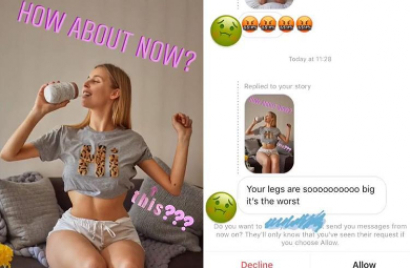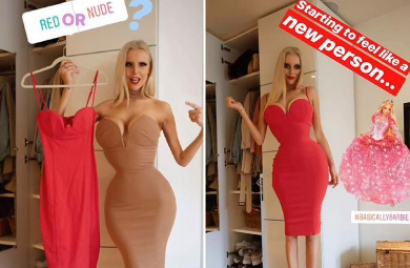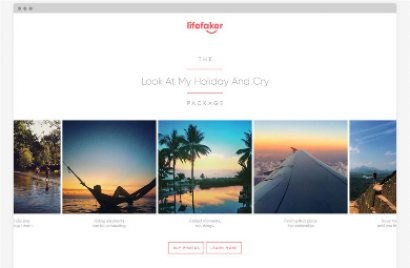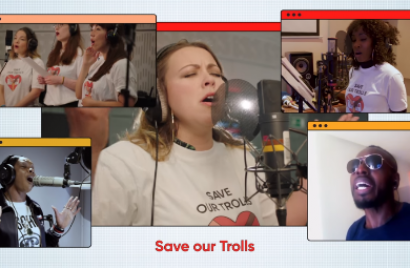
Tesco Mobile and BBH London use humour to showcase the network’s connectivity
‘It Pays to be Connected’ reaches consumers with relatable circumstances
When you say the word troll, what image springs to mind? How about a shadow-like figure sitting behind a computer screen angrily typing away at people they’ve never met?


When you say the word troll, what image springs to mind? Is it the neon-haired plastic toys that sat atop your pencil at school? Or perhaps the hideous giant who smashed through bathroom cubicles chasing Harry Potter? How about a shadow-like figure sitting behind a computer screen angrily typing away at people they’ve never met?
The Oxford English Dictionary’s second entry for the term troll, after ugly creature, describes them as “a person who makes a deliberately offensive or provocative online post...with the aim of upsetting someone or eliciting an angry response from them.” It’s the deliberate intention that moves the comments from the realm of considered, fiery discussion into the hateful sphere of online abuse, transforming them from commenter into ugly creature.
These offensive comments are hurled at any and every kind of person online whether they are a young teenager with a public profile on Instagram or a celebrity with millions of followers. There seems to be no distinction and this abuse can have all manner of damaging and debilitating effects.
Trolls adhere to a school of thought that doesn’t subscribe to reasoned discussion. When the scholar Mary Beard was trolled online by a 20-year-old student, she retweeted his comments to her followers. The student subsequently apologised, the two went out for lunch and Beard even gave him a character reference for a job interview. Instead of ignoring the threats Beard shone a light on his disgraceful behaviour and engaged him in active discussion. She chose to try and understand the person behind the comments and why he chose to behave in such a way.
It is a strange phenomenon that screens have provided people with a mask behind which ugly creatures can hide, allowing them to comment in a way that they most likely wouldn’t do in person. It is something that Dr Whitney Phillips comments on in her book ‘This is Why We Can’t Have Nice Things: Mapping the Relationship between Online Trolling and Mainstream Culture’. She believes that the “mask” allows people to detach themselves from the harm their words carry and from the detrimental effect they may have on others. They can simply log off, both mentally and physically.
Online abuse has only grown with the rise of social media. It seems as though social platforms don’t know how best to tackle the problem and their efforts are often deemed weak by campaigners. There is no real legislation in place so, as the platforms themselves do little to engage with the issue, a space has opened up for brands to both address and help to tackle the problem.
According to the Cybersmile Foundation, an anti-cyberbullying non-profit, girls are nearly twice as likely to experience cyberbullying as boys. A statistic has revealed that 40% of all UK secondary or high school children have been bullied online and 1 in 4 have suffered repeated incidents.
Cybersmile teamed up with the social media influencer Chessie King and adam&eveDDB to create #TrollingIsUgly. The campaign looks at the effect that online abuse can have on young people’s confidence, particularly young women and girls.
They co-created an initial video in which King, who has over 368,000 followers on Instagram, talked about her journey to finding body confidence wearing only her underwear. The video had over 150,000 views in the first 12 hours but King received a huge amount of negative feedback focused on her physical appearance.
Over the next day, King posted videos on her Instagram Stories in which she continually altered her face and body in line with the negative comments. From manipulating the size of her waist and arms, to erasing her eyebrows and plumping her lips. By the end, she looks so distorted that she seems inhuman, an avatar of hate-filled feedback. The final post directed people to the foundation’s website for advice.
Although Instagram Stories only last for 24 hours, this campaign has been saved as a highlight on King’s profile for a month. #TrollingIsUgly addresses the enormously dangerous effect that online trolling can have on people’s body confidence, especially on young people who frequent social media platforms.


Life isn’t perfect but your social media can be. This is the message behind Santus’ tongue-in-cheek campaign with AMV BBDO, Lifefaker. They created a video to promote lifefaker.com, a fictitious satirical website that does what it says on the tin: it helps you fake your life online. The website offers an array of packages from “The I Found Love and Babies” to “The Look at my Holiday and Cry” and even “The I Can be Arty and Deep” to allow users to conjure up a glossy veneer over their lives. Lifefaker explores the pressures people feel from comparing themselves to other people on social media and highlights the, often negative, influence that social media can have on our mental health.


Mother has created a joyful, satirical charity song for BBC Radio 4’s Woman’s Hour called Save Our Trolls. The song was made in response to accounts from four women of the abuse they have suffered online, recounted during the Woman’s Hour series #TakeBackConTROLL. Featuring an array of stars from Charlotte Church to Miranda Hart, Edith Bowman and even Gollum, the song has been released to raise awareness around the damage that online trolls can cause. The campaign’s aim is to start a conversation with trolls, public health officials and politicians alike to help change people’s behaviour online as well as also looking to have online abuse considered as a public health issue.
Looks like you need to create a Creativebrief account to perform this action.
Create account Sign inLooks like you need to create a Creativebrief account to perform this action.
Create account Sign in